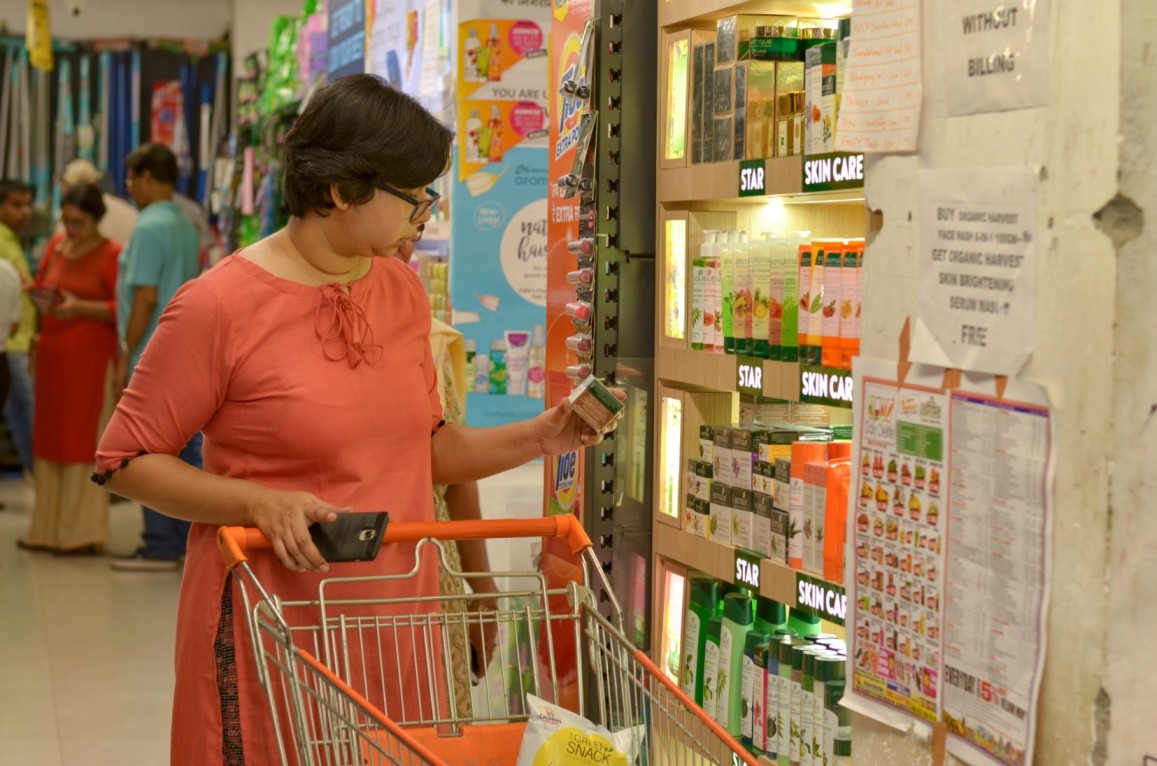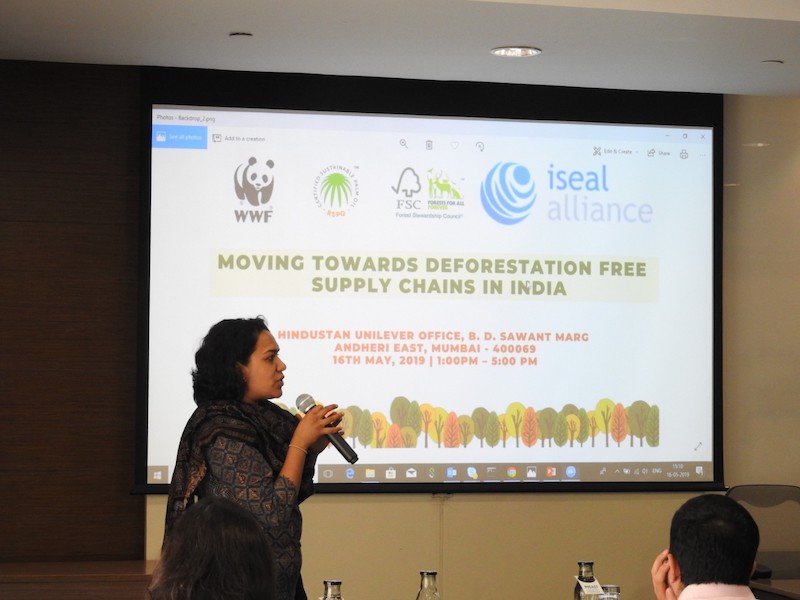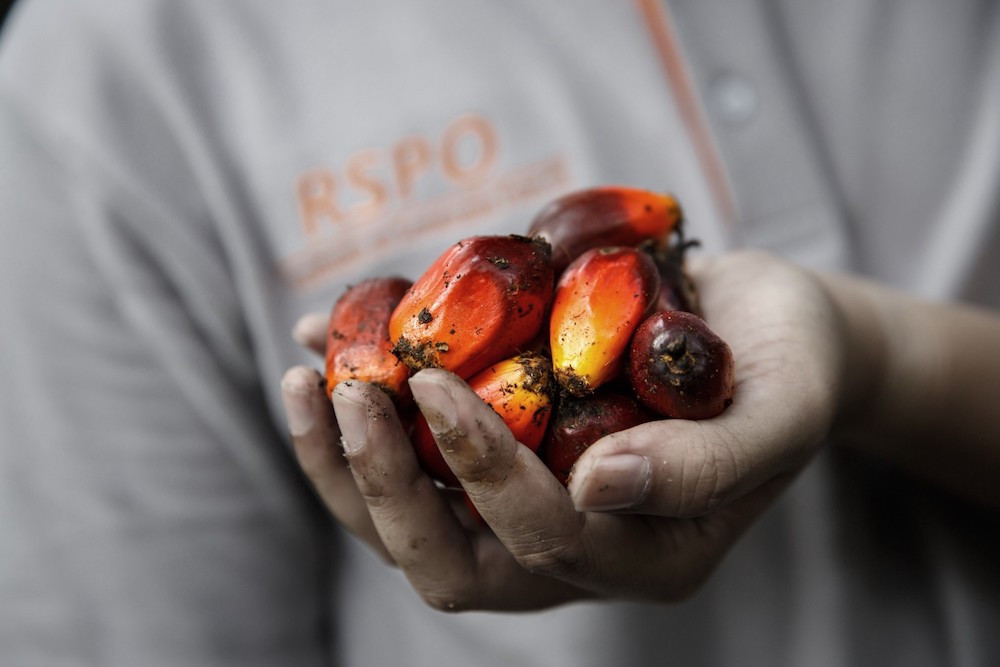Can We Save Forests While Consuming Palm Oil? Indian Businesses Have the Answer
Did you know, globally, each of us use and consume up to 8 kilos of palm oil annually? Where? In our food, our cosmetics, and other items we use daily.

This article has been published in partnership with RSPO
If you google ‘palm oil’, you will see mixed reactions in the hundreds of search results generated. On the one hand, you would find visual footage of rainforests being bulldozed in Southeast Asia and orangutans consequently losing their habitats, but on the other hand, you would discover the many advantages of palm oil. While one end of the spectrum speaks about how the oil has scarred many parts of the world, the other end tries to highlight the many reasons why the world must use sustainably grown and sourced palm oil.
Looking back, the ubiquitous usage of palm oil boomed in the past few decades with the rising demand for processed foods and cosmetics. The production of palm oil soared with the introduction of the pollinating weevil insect — Elaedobius kamerunicus — which efficiently fertilises the oil palms that historically, had to be manually pollinated.
But the clamorous negativity around palm oil cultivation in present times has prompted global discussions about daily consumption habits, so as to try and keep the ingredient out of our food, cosmetics and toiletries.
However, amid the rising movement against unsustainable palm oil production, a fact almost often tends to get overlooked. From toothpaste to detergent, almost 50 per cent of the essential products in our daily lives contain palm oil or its derivatives. Globally, each of us consume up to 8 kilos of palm oil annually.
This makes the issue much more complicated than a simple ban, and requires the involvement of multiple stakeholders as opposed to just governments or environmentalists. A blanket ban on palm oil production would lead to increased pressure on other oil alternatives. It will impact up to 10 times more land area, since other plant-based oils incur a heavier toll on the environment when mass-produced to substitute palm oil.
Another significant point that goes unnoticed in these discussions is that the debate here should be between sustainably and unsustainably sourced palm oil, not between palm oil and no palm oil.
“Nineteen per cent of the total worldwide production of palm oil is sustainably produced. The companies committed to sustainable palm oil production have a substantially higher equity return of 24.7 percentage points, thus showing that it ‘pays’ to be sustainable. Palm oil, as compared to other oils like sunflower, rapeseed, or soybean has the biggest usage. It is a popular oil since it is relatively cheap, uses less resources, and is more versatile and high yielding,” shares Kamal Prakash Seth, India Representative of the Roundtable on Sustainable Palm Oil (RSPO).

RSPO, a non-profit organisation, aspires to consolidate all stakeholders in the palm oil supply chain with a common aim. From sustainable cultivators in remote villages to corporate conglomerates who use certified sustainable palm oil, RSPO brings these diverse stakeholders together to develop a space where palm oil does not threaten the environment and the livelihood of local communities.
Over the past 15 years, the RSPO has been working in partnership with global entities like the World Wide Fund for Nature (WWF), the United Nations Environment Programme (UNEP), and national organisations like the Centre for Responsible Business (CRB), Hindustan Unilever Limited, AAK Kamani, and others to advocate for sustainable palm oil production that does not adversely affect the environment and biodiversity.
Several organisations in India have already secured RSPO supply chain certification and drawn up sustainable business strategies. They have laid a crucial emphasis on raising awareness and fostering sensitisation among consumers in the upcoming future. Recently, RSPO interacted with representatives from such businesses who underlined their business practices with sustainability as the forward.
The need for sustainable businesses in the post COVID-19 world
In light of the ongoing COVID-19 pandemic, the world has witnessed unique challenges in all sectors, once again fuelling the debate on climate change. Faced with an unprecedented crisis, businesses have brainstormed to create sustainable ways to thrive in the post COVID-19 world.
The conclusion has always been the same — the need for ‘businesses with purpose’ in place of “businesses with profit”.
To sail through the quandary, businesses globally are eyeing a revamped approach — one that aligns with the Sustainable Development Goals (SDGs) propounded by the United Nations Development Programme (UNDP). A cleaner and greener usage of natural resources lies at the basis of this altered agenda.
A catalysation opportunity from the pandemic

“The pandemic presents a ‘Catalysation Opportunity’, providing businesses with a chance to explore, discuss and dissect the issue of sustainability, and work towards mainstreaming the subject of Sustainable Development through our activities,” remarks Rijit Sengupta, CEO of CRB India.
The term ‘stakeholder capitalism’ also surfaced in his speech — a policy pledged upon by many businesses at present, in place of ‘shareholder capitalism’. While the latter focuses on pooling capital with limited liability on the part of the corporates, the former advocates for an economic system where businesses have to ensure the best interests of all their stakeholders.
AAK Kamani, the food company that was notably the first in India to acquire RSPO supply chain certification, is focussing on nutrition for all, while sustainably procuring their raw materials that majorly includes palm oil. Owner, Prakash Chawal, highlighted that in a capitalistic sphere, very few companies track their environmental impact and incorporate sustainability as a key business component, which has never been the case with AAK Kamani.
“There is also a need to align ourselves together in order to bring sustainability and a sustainable way of living to the forefront,” he shared, reiterating the importance for all companies to trace and control their environmental footprint.
Integrating sustainability with empowering the marginalised

In a recent webinar on ‘Future-Proofing Businesses in a Post Covid-19 World’, Bhavna Prasad, Director of Sustainable Business at WWF India presented some stirring statistics. She pointed out that at present, human consumption of the planet’s resources stands at a rate that is 1.6 times faster than its speed of regeneration.
This, along with the destruction of nearly 80 per cent of the Earth’s forested lands, has resulted in a climate emergency, which has added to the mayhem of the COVID-19 pandemic. Re-evaluating our collective actions to combat environmental threats can help prevent such crises in the future. The sustainable switch towards sustainably sourced palm oil, with RSPO certification, can be a good first step for consumer businesses towards this objective.
For the last six decades, Manorama Industries has been empowering tribal communities in Chhattisgarh, Odisha, Madhya Pradesh and several other states. By sustainably procuring edible fats and butter from Sal seeds, Mahua seeds and mango kernels, they have given rise to several exotic products that are lauded globally. Needless to say, Manorama Industries went ahead and secured the RSPO membership and supply chain certification to manage business risks.
Although they have always had eco-friendliness at the top of their priority list, the company now aims at integrating sustainability at every step, generating livelihood opportunities for tribal women and men.
Reassessing our economic outlook

“Take-make-dispose” – the unhealthy pattern of development that the world religiously adheres to – is at the root of the present environmental adversities we are experiencing. UNEP has urged businesses in India and the world to adopt a more rationalistic approach to economic growth, one that encompasses the environment at every step of the trade.
Acquiring RSPO certification could be made mandatory to combat the adverse effects on tropical rainforests that house millions of acres of palm oil plantations.
Green investments, which align with the standards of sustainable production and consumption can play a key role in a better and more secure future for the planet. “Financial institutions can help promote sustainable businesses through channelling greater investments into green businesses, applying the ESG lens and framework, and helping them to make sustainable investment decisions,” says Arindom Datta, Executive Director of Rabobank.
A recalibration of our economic methods is an urgent necessity, what with the pandemic forcing us to reassess our actions and the subsequent impact on the planet. Over the last 15-16 years, many of the businesses across the world have understood the challenges and have started opting for sustainably sourced palm oil. However, there is a need to mainstream this. Only then can orangutans and other endangered animals live in peace with their families, while we enjoy that guilt-free tub of ice-cream with our loved ones.
Join the movement and ask your favourite brands if their products contain CSPO. Take the pledge now and tell your family and friends to do the same. Take the pledge here.
(Edited by Saiqua Sultan)
This story made me
- 97
- 121
- 89
- 167
Tell Us More
We bring stories straight from the heart of India, to inspire millions and create a wave of impact. Our positive movement is growing bigger everyday, and we would love for you to join it.
Please contribute whatever you can, every little penny helps our team in bringing you more stories that support dreams and spread hope.



















